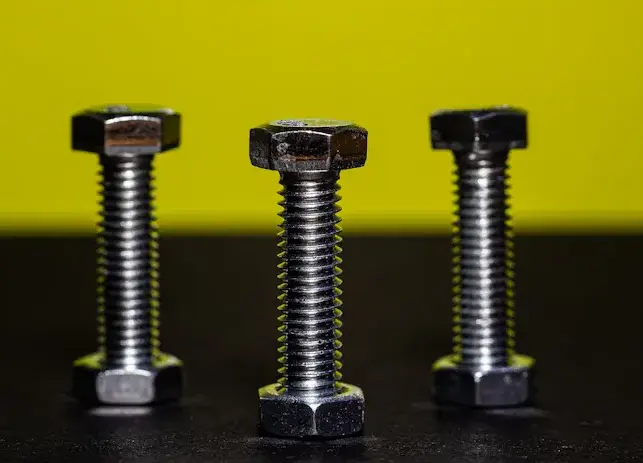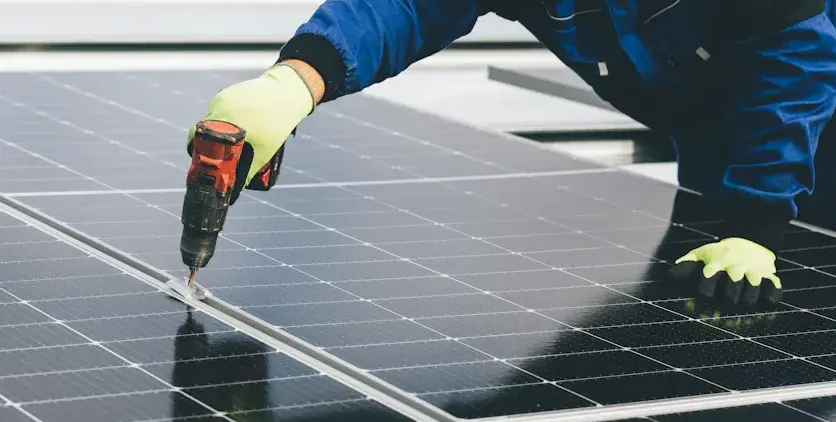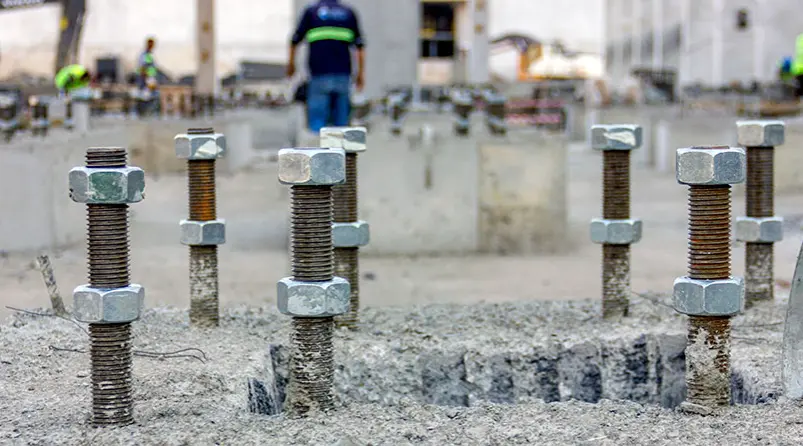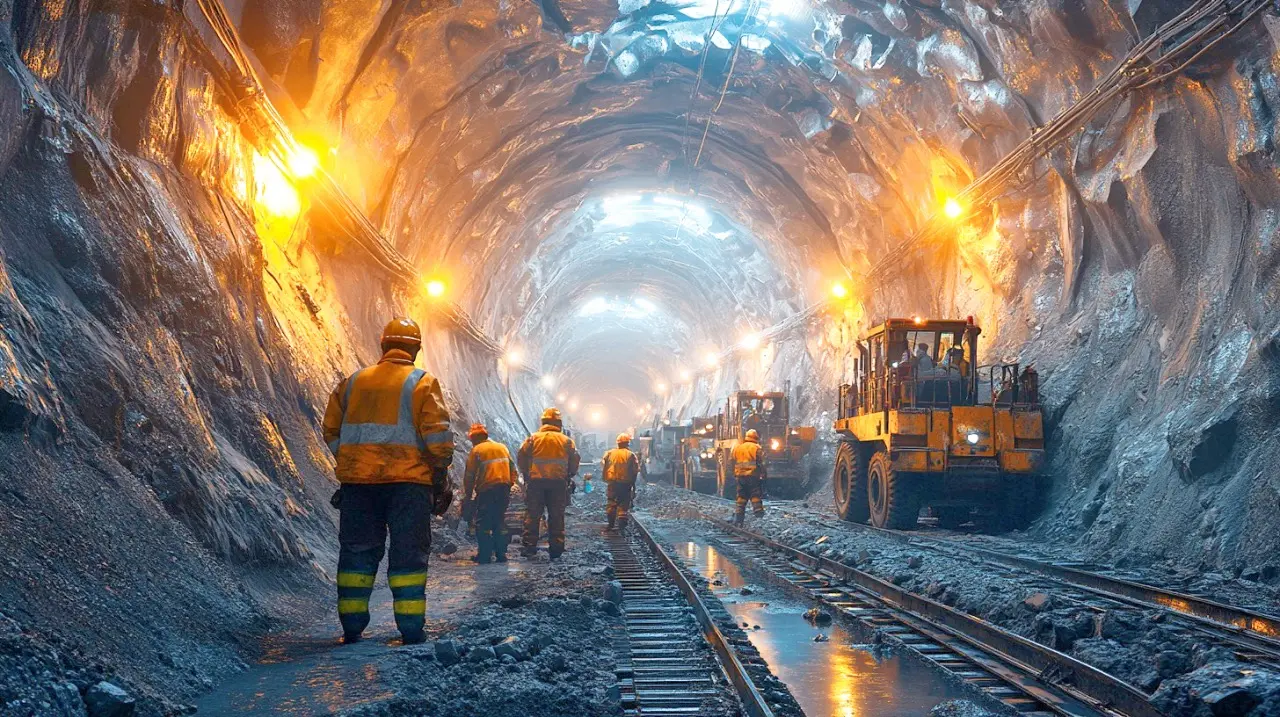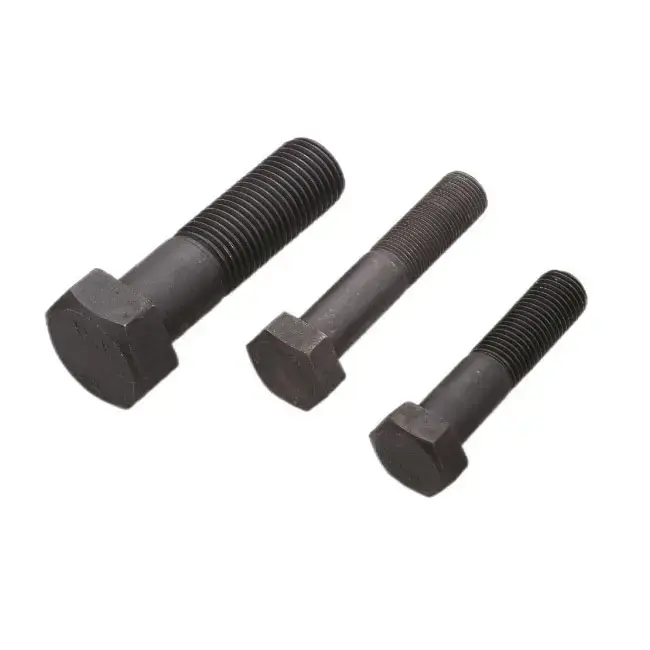Expert Review of Hydraulic Fasteners for Industrial Needs
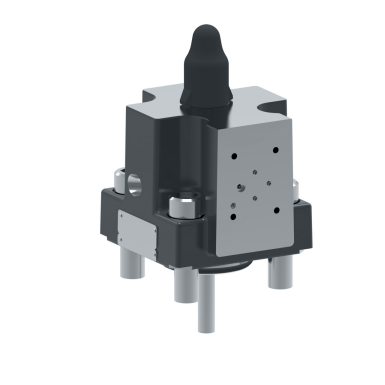
Hydraulic support specialized fasteners are essential in industrial applications, providing secure and precise connections even under high-pressure conditions. Their significance lies in advancements in fastening technology, which have greatly improved safety and reliability. Achieving precise torque values, a critical feature of hydraulic support specialized fasteners, helps prevent equipment failures and reduces risks. Historical data emphasizes how improper bolt fastening has caused accidents, highlighting the necessity for accurate fastening methods. Continuous innovations in materials and automation further enhance these fasteners, delivering unparalleled reliability and durability for challenging high-pressure environments.
Key Takeaways
- Hydraulic fasteners keep things tightly connected in high-pressure areas. They improve safety and work well in factories.
- Picking the right material, like strong steel or titanium, is important. It helps them last longer and work better in tough jobs.
- Checking and taking care of them often is very important. This helps them last longer and stops expensive problems.
Key Features to Consider When Choosing Hydraulic Fasteners
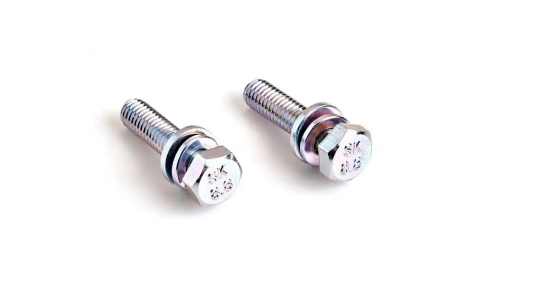
Material and Durability
Material selection plays a pivotal role in determining the durability and performance of hydraulic support specialized fasteners. Tensile Strength, a critical property, defines the load-bearing capacity and safety of these fasteners. Tensile testing evaluates mechanical behavior under tension, revealing metrics like ductility and toughness. These properties ensure the fasteners withstand high-pressure environments without compromising structural integrity. For industrial applications, materials such ashigh-grade steel or titanium are preferred due to their resistance to corrosion and fatigue under dynamic loads.
Compatibility with Industrial Systems
Compatibility ensures hydraulic fasteners integrate seamlessly with industrial systems without causing damage. Fasteners must avoid adverse effects on thin materials or composites, as hoop stress can lead to crack propagation. Additionally, selecting flange materials compatible with the operating environment and transported fluids prevents corrosion and mechanical failure. Proper compatibility reduces downtime and enhances system reliability, making it a crucial consideration for industries handling high-pressure operations.
Safety and Reliability
Safety and reliability are non-negotiable in industrial settings. The Sayano-Shushen hydroelectric power station disaster highlights the catastrophic consequences of hydraulic fastener failure. Fatigue fractures in fasteners caused dynamic loads to compromise the turbine cover, resulting in significant loss of life and financial damages. Regular maintenance and high-quality fasteners mitigate such risks, ensuring secure connections and operational safety in high-pressure environments.
Maintenance Requirements
Effective maintenance prolongs the lifespan of hydraulic fasteners and ensures consistent performance. Key practices include inspecting hoses for leaks at junctions, checking threaded joints, and assessing outer coverings for blistering or deformation. Monitoring hydraulic pumps and motors for unusual noises or vibrations also prevents costly failures. Routine upkeep minimizes risks and maintains the reliability of hydraulic support specialized fasteners in demanding industrial applications.
Cost-Effectiveness
Cost-effectiveness balances performance with operational expenses. Hydraulic torque tools, while powerful, incur higher maintenance costs due to pumps, fluids, and hoses. Alternatives like the E-RAD BLU offer faster operation and reduced maintenance needs, lowering labor costs and downtime. Its design minimizes interruptions, ensuring longer operational periods without expensive repairs. Industries benefit from quicker project completion and enhanced efficiency, making it a preferred choice for high-pressure applications.
Top Hydraulic Fasteners for Industrial Applications in 2025
Parker 82 Series - Features, Pros, and Cons
The Parker 82 Series hydraulic fasteners stand out for their robust design and adaptability. These fasteners utilize advanced sealing technology, ensuring leak-free performance in high-pressure environments. Their compact construction allows easy integration into tight spaces, making them ideal for industries with limited installation areas.
Features:
- High-pressure sealing capability.
- Compact design for space-constrained applications.
- Corrosion-resistant materials for extended durability.
Pros:
- Reliable performance under extreme conditions.
- Easy installation and maintenance.
- Long lifespan reduces replacement costs.
Cons:
- Higher upfront cost compared to standard fasteners.
- Limited availability in certain regions.
Tip: Industries requiring precision and reliability in confined spaces benefit significantly from the Parker 82 Series.
Bosch Rexroth Hydraulic Fasteners - Features, Pros, and Cons
Bosch Rexroth hydraulic fasteners combine precision engineering with innovative technology. These fasteners excel in dynamic applications, offering exceptional load-bearing capacity and vibration resistance. Their modular design simplifies customization, catering to diverse industrial needs.
Features:
- Modular design for flexible configurations.
- High load-bearing capacity.
- Vibration-resistant construction.
Pros:
- Customizable for specific applications.
- Enhanced stability under dynamic loads.
- Reduced downtime due to quick installation.
Cons:
- Requires specialized tools for installation.
- Maintenance can be complex for inexperienced operators.
Note: Bosch Rexroth fasteners are ideal for industries prioritizing adaptability and high-performance under fluctuating conditions.
Enerpac Hydraulic Tensioners - Features, Pros, and Cons
Enerpac hydraulic tensioners deliver unmatched precision in bolt tightening, ensuring optimal clamping force. These fasteners are designed for heavy-duty applications, offering superior durability and reliability. Their ergonomic design enhances user convenience, reducing operator fatigue during prolonged use.
Features:
- Precision bolt tightening for consistent clamping force.
- Ergonomic design for user comfort.
- Heavy-duty construction for demanding applications.
Pros:
- High accuracy minimizes equipment failure risks.
- Durable materials withstand harsh environments.
- User-friendly design improves operational efficiency.
Cons:
- Bulkier design may limit use in compact spaces.
- Higher maintenance requirements compared to lighter alternatives.
Tip: Enerpac tensioners are the go-to choice for industries requiring precise torque control in heavy-duty operations.
SKF Hydraulic Nuts - Features, Pros, and Cons
SKF hydraulic nuts offer a combination of durability, performance, and user convenience. Their reliable clamping force ensures secure connections, even under heavy loads and vibrations. Precision engineering simplifies installation and maintenance, reducing downtime and operational costs.
Features:
| Feature | Description |
|---|---|
| Clamping Force | Reliable clamping force utilizing hydraulic pressure. |
| Construction | Durable construction resistant to wear and tear. |
| Installation | Simplifies installation and removal. |
| Performance | Optimizes operation and extends equipment lifespan. |
| User Convenience | Quick connection coupling for efficient maintenance. |
Pros:
- Exceptional load resistance protects sensitive systems.
- Precision engineering enhances stability and alignment.
- Operational efficiency reduces labor costs.
Cons:
- Initial investment may be higher than standard fasteners.
- Requires skilled personnel for optimal performance.
Note: SKF hydraulic nuts are perfect for industries seeking reliable locking performance and enhanced operational efficiency.
SPX FLOW Bolting Systems - Features, Pros, and Cons
SPX FLOW bolting systems are engineered for high-pressure applications, delivering superior performance and reliability. These fasteners feature advanced bolting technology, ensuring secure connections in critical systems. Their lightweight design facilitates easy handling and installation, making them a preferred choice for many industries.
Features:
- Advanced bolting technology for secure connections.
- Lightweight design for improved portability.
- High-pressure resistance for demanding applications.
Pros:
- Simplified installation reduces downtime.
- Lightweight construction enhances user convenience.
- Reliable performance under extreme conditions.
Cons:
- Limited compatibility with older systems.
- May require frequent inspections in high-stress environments.
Tip: SPX FLOW bolting systems are ideal for industries prioritizing portability and high-pressure reliability.
Comparison of Top Hydraulic Fasteners
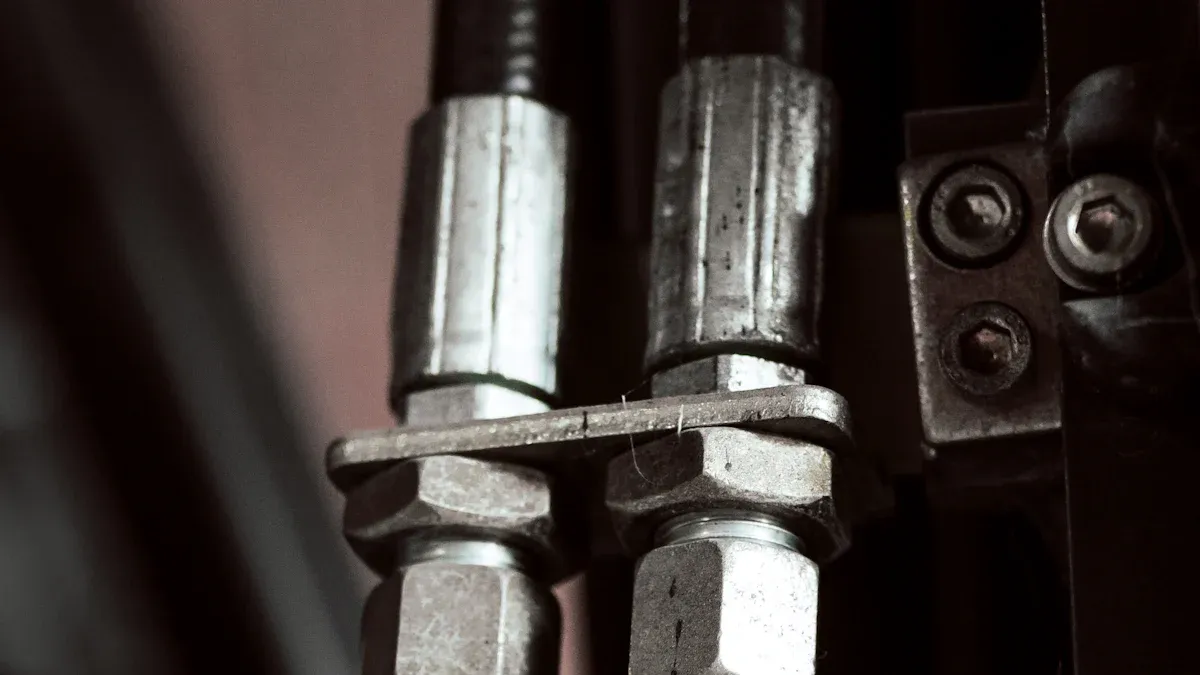
Performance and Efficiency
Hydraulic support specialized fasteners vary significantly in performance and efficiency based on material composition and design. Stainless Steel fasteners excel in corrosive environments, offering unmatched durability for high-pressure applications. Regular steel fasteners provide reliable performance for heavy machinery, balancing affordability with strength. Brass fasteners, while less durable, suit low-pressure systems like plumbing.
| Metric | Durability | Application Suitability | Cost |
|---|---|---|---|
| Stainless Steel | Best for corrosive environments | High-pressure applications | Higher cost |
| Regular Steel | Good for industrial use | Heavy machinery | Most affordable |
| Brass | Suitable for low-pressure systems | Plumbing | Moderate cost |
Selecting the right material ensures optimal efficiency and reduces operational risks.
Cost and Value for Money
Cost-effectiveness depends on balancing upfront investment with long-term savings. Stainless steel fasteners, while expensive, reduce replacement costs due to their extended lifespan. Regular steel fasteners offer the best value for industries prioritizing affordability. Brass fasteners provide moderate cost savings but require frequent replacements in high-pressure environments. Industries must weigh initial costs against maintenance expenses to maximize value.
Maintenance and Longevity
Maintenance requirements impact the longevity of hydraulic fasteners. Stainless steel fasteners resist corrosion, minimizing upkeep. Regular steel fasteners require periodic inspections to prevent wear and tear. Brass fasteners demand frequent checks due to their susceptibility to pressure-induced damage. Proper maintenance schedules extend the lifespan of fasteners, ensuring consistent performance in demanding applications.
Application-Specific Suitability
Hydraulic fasteners must align with specific industrial applications to ensure safety and reliability. Automotive systems rely on fittings capable of handling high working pressures in brake lines and fuel systems. Aerospace applications demand fasteners that withstand extreme conditions and high pressure. Manufacturing and construction industries require fittings with reliable pressure ratings to ensure operational safety.
| Application | Description | Pressure Rating Considerations |
|---|---|---|
| Automotive | Used in brake lines, fuel systems, and power steering systems. | Requires fittings that can handle high working pressures. |
| Aerospace | Essential for hydraulic systems that control flight surfaces and landing gear. | Must withstand extreme conditions and high pressure. |
| Manufacturing | Used in hydraulic presses, injection molding machines, and assembly lines. | Needs fittings with reliable pressure ratings for safety. |
| Construction | Critical in Heavy Equipment such as excavators, cranes, and bulldozers. | Must handle varying pressures and environmental conditions. |
Matching fasteners to their intended applications ensures operational efficiency and reduces risks.
How to Choose the Right Hydraulic Fastener
Assessing Your Industrial Application Needs
Selecting the right hydraulic fastener begins with understanding the specific requirements of the industrial application. Each industry has unique operational demands, such as pressure levels, environmental conditions, and load capacities. For example, high-pressure systems in the aerospace sector require fasteners capable of withstanding extreme forces and temperatures. In contrast, manufacturing industries may prioritize fasteners that offer durability and cost-efficiency for repetitive use.
Operators should evaluate the working environment, including exposure to corrosive substances, vibrations, or temperature fluctuations. These factors influence the material and design of the fastener. For instance, stainless steel fasteners excel in corrosive environments, while titanium fasteners are ideal for high-pressure applications due to their strength-to-weight ratio. By aligning fastener specifications with operational needs, industries can ensure safety, reliability, and optimal performance.
Evaluating Compatibility with Existing Systems
Compatibility plays a critical role in ensuring seamless integration of hydraulic fasteners into existing systems. Mismatched components can lead to operational inefficiencies, increased wear, and potential system failures. Industries must assess the dimensions, thread types, and pressure ratings of their current systems before selecting fasteners.
For example, hydraulic support specialized fasteners must match the flange materials and transported fluids to prevent corrosion and mechanical failure. Additionally, operators should consider the impact of hoop stress on thin materials or composites, as improper fastener selection can cause crack propagation. Ensuring compatibility reduces downtime, enhances system reliability, and minimizes maintenance costs.
Balancing Performance and Budget
Balancing performance and budget is essential when choosing hydraulic fasteners. While high-performance fasteners often come with a higher upfront cost, they can provide long-term savings by reducing maintenance and replacement expenses. For instance, stainless steel fasteners, though expensive, offer superior durability and corrosion resistance, making them a cost-effective choice for high-pressure applications.
Industries should also consider alternatives like modular fasteners, which allow for customization and adaptability. These options can optimize performance without exceeding budget constraints. By evaluating the total cost of ownership, including installation, maintenance, and potential downtime, operators can make informed decisions that align with both performance goals and financial limitations.
Consulting with Experts or Manufacturers
Consulting with experts or manufacturers ensures that industries select the most suitable hydraulic fasteners for their needs. Professionals can provide insights into design changes, quality standards, and risk assessments, helping operators avoid costly mistakes. For example, proactive design changes can address potential issues before they arise, while incorporating quality standards like ISO17025 ensures compliance and reliability.
The following table highlights key considerations when consulting with experts:
| Key Considerations | Description |
|---|---|
| Proactive Design Changes | Emphasizes the need for design changes before issues arise, as retrofitting can be costly. |
| Quality Standards | Highlights the importance of incorporating quality standards like ISO17025 into contracts and designs. |
| Risk Assessment | Discusses the necessity of evaluating risks, assigning probabilities, and determining severity, with ultimate responsibility resting on the technical warrant holder. |
By leveraging expert advice, industries can optimize fastener selection, enhance system performance, and mitigate risks. Manufacturers can also provide tailored solutions, ensuring compatibility and efficiency for specific applications.
Choosing the right hydraulic fastener ensures safety, efficiency, and cost savings in industrial operations. Top options like Parker 82 Series and SKF Hydraulic Nuts offer durability and precision.
Recommendation: Evaluate application needs, system compatibility, and budget constraints. Consult experts to align fastener selection with operational goals for optimal performance in 2025.
FAQ
What are the key benefits of using hydraulic fasteners in industrial applications?
Hydraulic fasteners provide precise torque control, reduce equipment failure risks, and ensure secure connections under high-pressure conditions. They enhance safety, reliability, and operational efficiency.
How often should hydraulic fasteners undergo maintenance?
Routine inspections should occur every 3-6 months. Operators must check for leaks, wear, and proper torque to ensure consistent performance and prevent failures.
Tip: Regular maintenance extends the lifespan of hydraulic fasteners and minimizes downtime.
Can hydraulic fasteners be reused after disassembly?
Some hydraulic fasteners, like tensioners, can be reused if they meet safety standards. Always consult the manufacturer’s guidelines to avoid compromising system integrity.
Note: Reusing fasteners improperly may lead to operational hazards.


